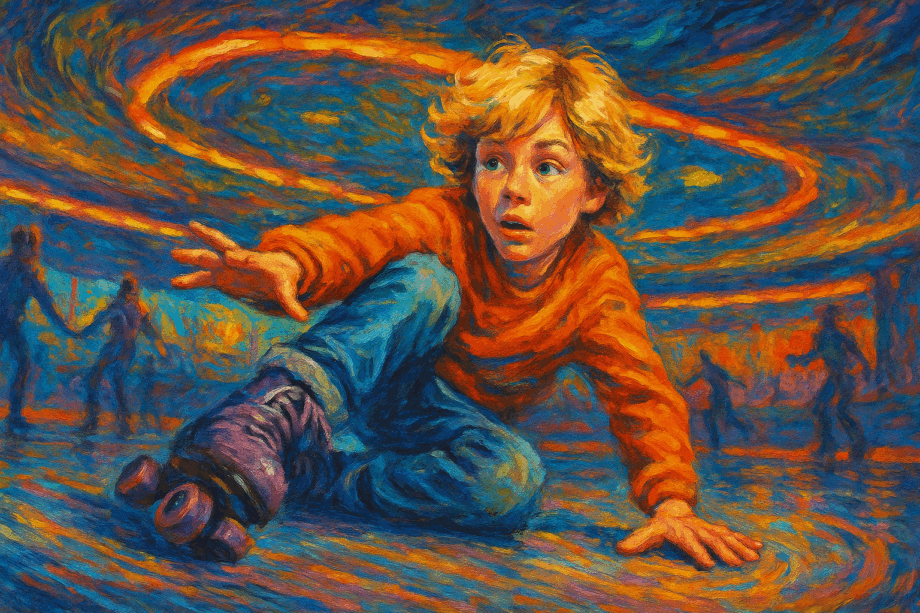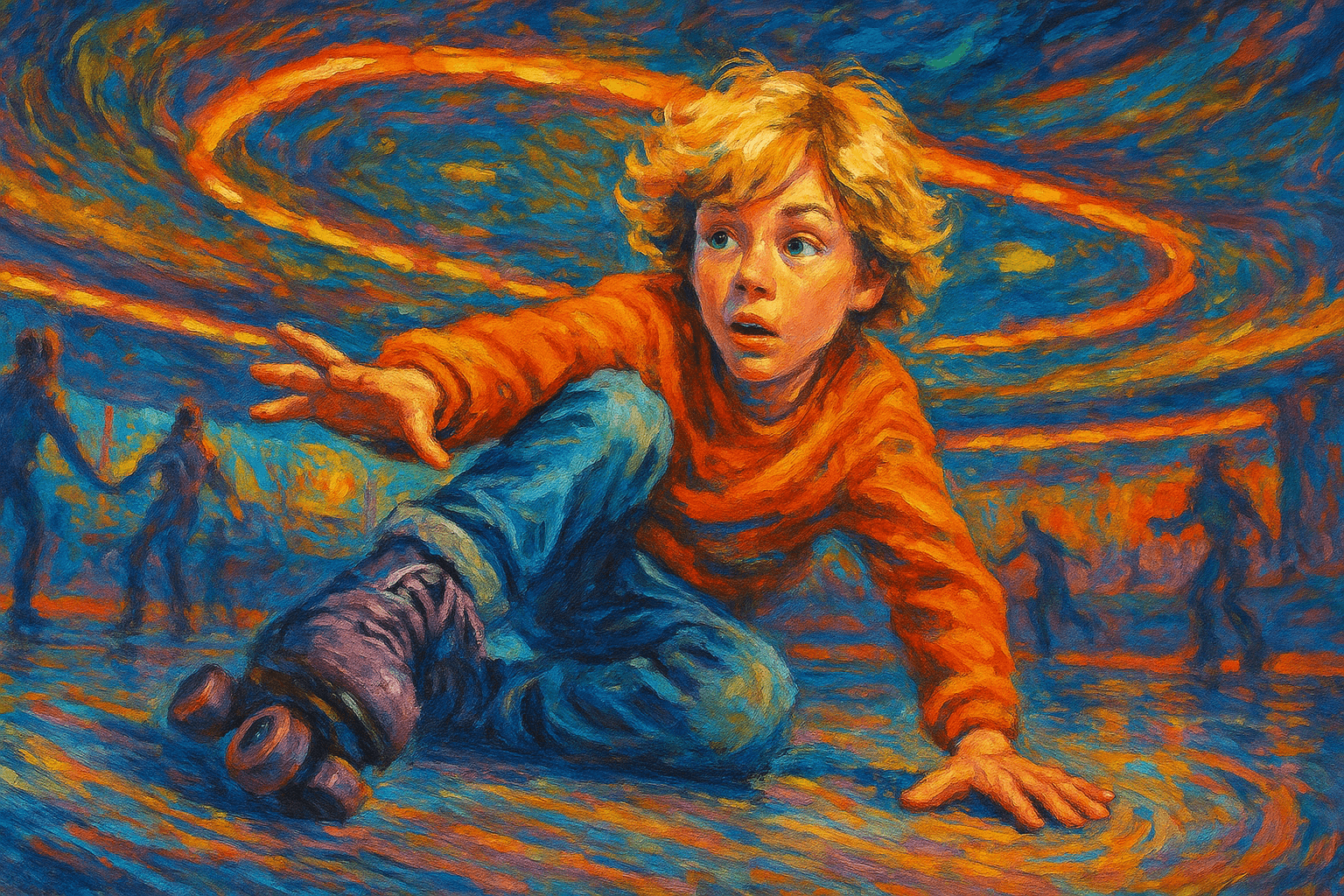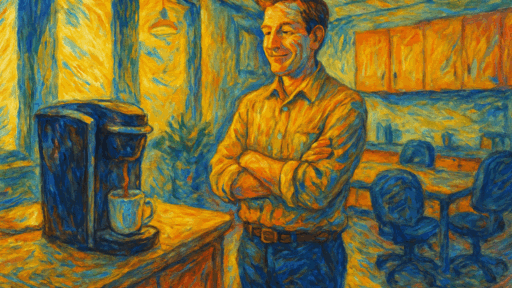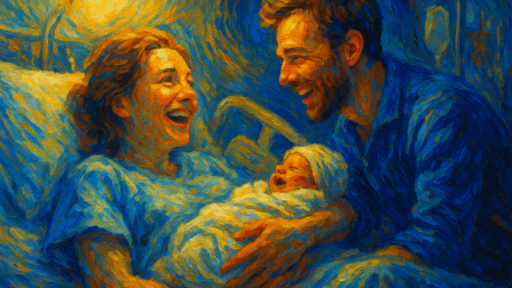“We are all beginners in the beginning.”
Ralph Waldo Emerson
On the thirteenth deck of the cruise ship—somewhere between Alaska’s glaciers and the endless buffet—there was something optimistically titled “The Sport Court.” Depending on the hour, it transformed into a soccer field, a basketball court, a dodgeball arena, or, for reasons I still can’t explain, a roller-skating rink.
On the morning in question, someone had decided it was Roller-Skating Day at Sea.
Both boys wanted to try.
This should have been comforting.
It was not.
My oldest had skated once in his life, briefly, and with the overall coordination of an inflatable tube man.
My youngest was a slightly better athlete—but emotionally?
He was (and remains) a high-resolution human being.
Everything he feels is felt in IMAX.
Shelley and I traded the look parents give each other when the next hour could go beautifully or collapse into a Greek tragedy. Then we divided and conquered:
I took the older one.
She took the younger one.
I’m not proud to admit it, but I’ve often underestimated my boys.
Not intentionally—I love them fiercely—just habitually.
I tend to sort them into neat little categories:
the cautious one,
the dramatic one,
the one who wants instructions,
and the one who ignores instructions.
It’s tidy.
It’s comforting.
It’s also, as I learn daily, almost entirely wrong.
We stepped onto the Sport Court—a miracle of modern engineering featuring bright blue flooring, netted walls, and a view of the Pacific that made it feel like you were skating inside a snow globe someone kept shaking.
Neon lights flickered overhead.
The music seemed determined to make the whole place feel busier than it was,
and the smell of concession-stand pizza blended with whatever Band-AIDs are made of.
My oldest clung to the rail like it owed him money.
He moved with the solemnity of a baby giraffe on stilts.
He was trying, though.
And every time he passed me—which took roughly seven minutes per lap—he’d give a small nod like he was reporting in: still alive.
I kept an eye on Shelley across the rink, bracing myself for the emotional meltdown I was certain was incoming. My youngest has a way of going from zero to detonation with no buildup.
He’s passionate.
He’s dramatic.
He once cried because his pizza was “too cheesy.”
So we braced ourselves.
And yet…
There he was.
Skating.
Falling.
Getting up.
Falling again.
Laughing.
Trying.
Trying again.
It wasn’t smooth.
It wasn’t graceful.
It bordered on interpretive flailing.
But each fall seemed to knock off a little of whatever was holding him back. He’d pop up grinning, as if the floor had given him instructions no one else could hear.
Shelley skated over at one point, ready to rescue him from whatever emotional cliff he was approaching. He waved her off.
“No, Mommy, I got it.”
He did not, in fact, “got it.”
Not even close.
But he believed he did, and that was new.
Somewhere between wipeout number twelve and thirteen, something shifted.
Not in him—in me.
He wasn’t the emotional mushroom cloud I always prepped for.
He wasn’t a binary creature ready to go heroic or volcanic at any moment.
He was a kid—my kid—testing his edges, discovering new ones, surprising both of us.
I’m the one who had him in a box.
He’s the one who climbed out of it.
For an hour, we were just a family on a floating gym floor in the middle of the Pacific:
two boys wobbling through childhood,
two parents wobbling through parenthood,
the ship tilting just enough to feel personally involved,
and everyone, somehow, still upright.
When it finally ended, he skated over to me—cheeks flushed, hair wild—and said, “When can we do this again?”
It wasn’t bravado.
It wasn’t performance.
It was joy—the unfiltered kind that makes you forget how many times you’ve fallen.
He swapped skates for sneakers.
We walked back down to the lower decks.
He held my hand, swinging it absentmindedly.
And I kept thinking about the boy I had expected to unravel
and the boy who didn’t.
Sometimes your kid grows an inch right in front of you,
and you’re so busy preparing for the fall
that you almost miss the rise.
I used to think my job was to catch him before he hit the floor.
Now I’m starting to wonder if it’s just to walk alongside him
while he figures out how to get back up—
again and again—
in ways I never saw coming.






